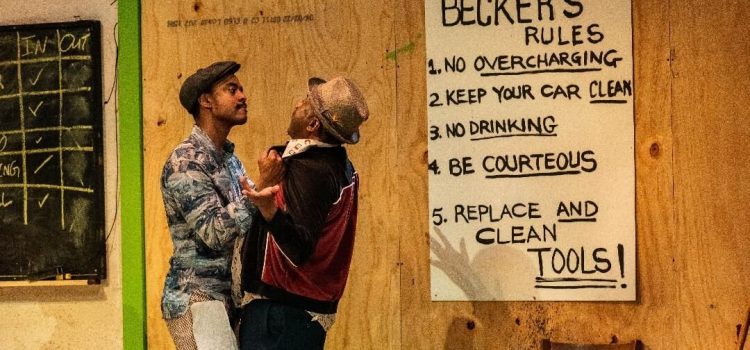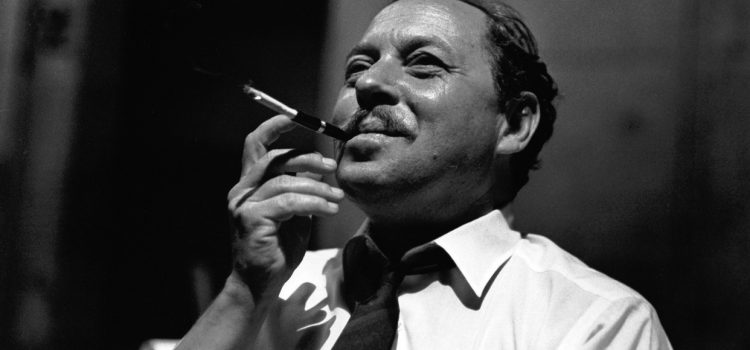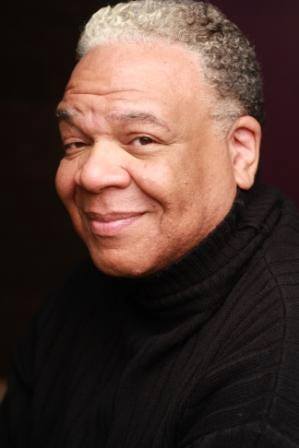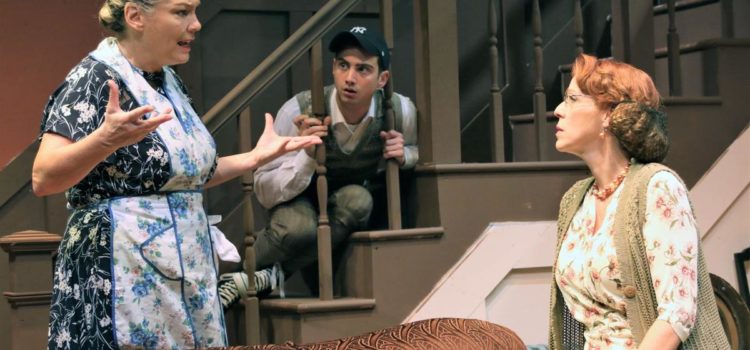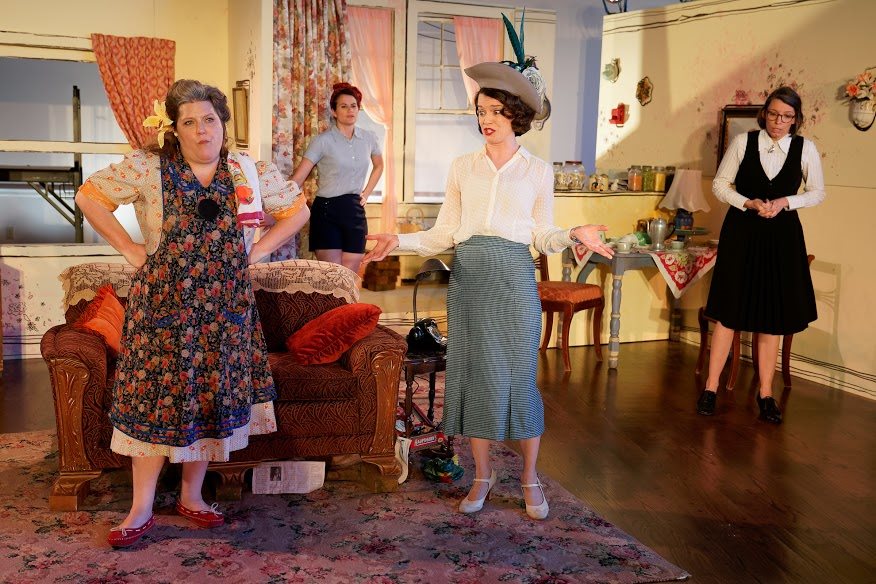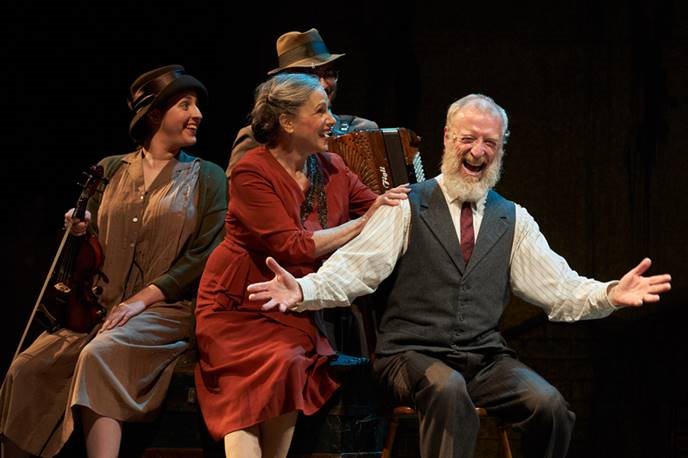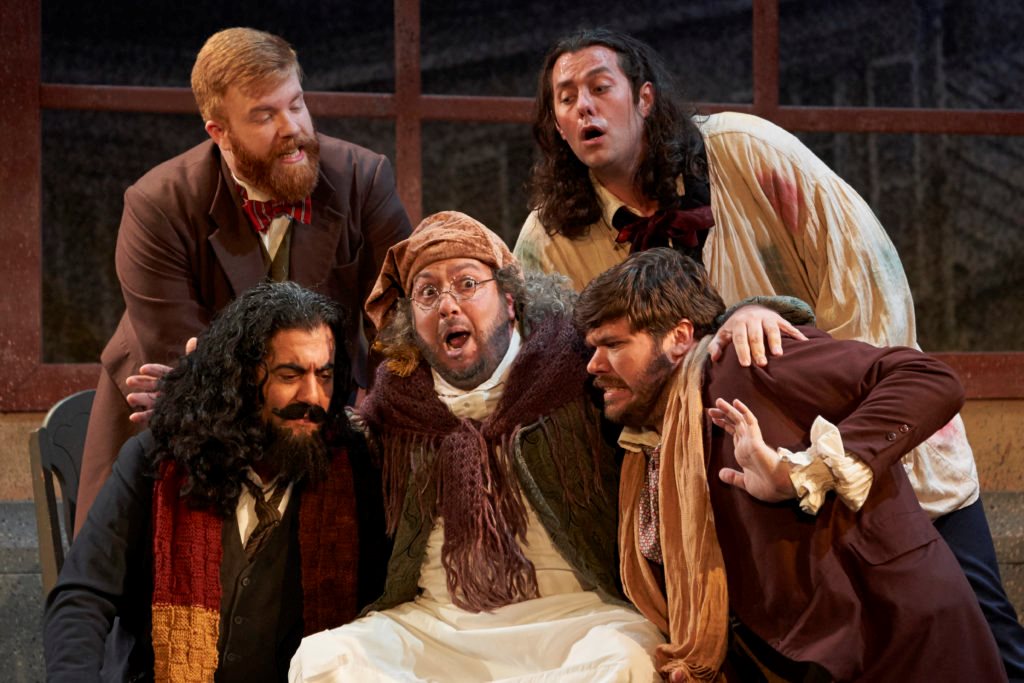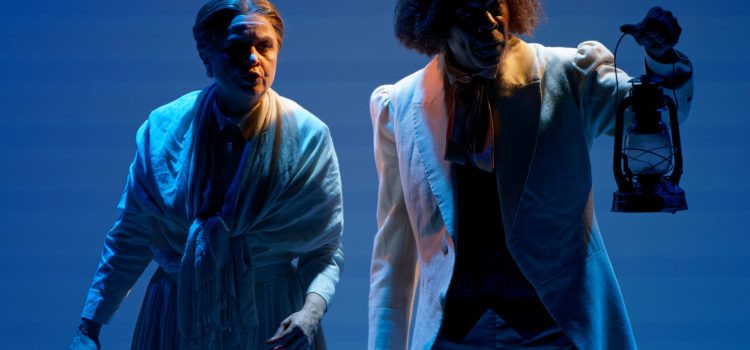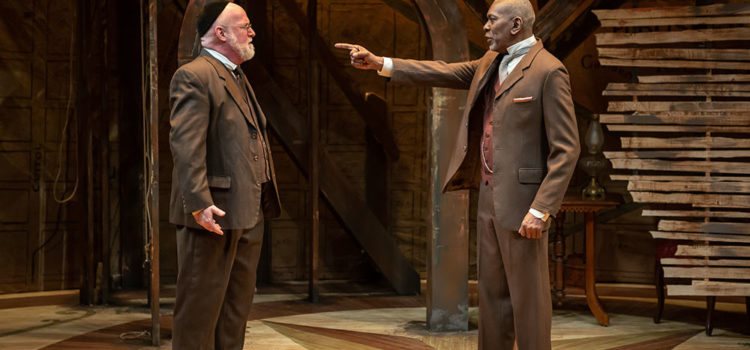By Lynn Venhaus
Bright before me the signs implore me
To help the needy and show them the way
Human kindness is overflowing
And I think it’s going to rain today
- Randy Newman, “I Think It’s Going to Rain Today,” 1968
As the gap between the haves and the have-nots keeps widening in America, August Wilson’s “Jitney,” the first play of his 10-play cycle in 10 decades of history, couldn’t be timelier.
The play, which is set in the 1970s in Pittsburgh’s Hill District, has lost none of its bite, and in the loving hands of The Black Rep, it is spellbinding. A richly textured tale of economic struggles, racial tensions, fathers, sons, hope, dreams, loss, strength, and the need for and meaning of community.
A jitney refers to an independently owned unlicensed car for hire. Because regular cab drivers did not service the Hill District, Wilson presented this urban renewal scenario for a makeshift gypsy cab service.
The city has decided to condemn the building, which threatens to eliminate Becker’s Car Service, and the owner frets about finances as the other characters have worries of their own. This lyrical production is powerful storytelling at its finest.
Wilson introduces us to the men who make a living driving these cabs as they sit around a dingy office waiting for the phone to ring – as well as the relatives and passengers who stop by.
The era vibrantly portrayed is after the Civil Rights Amendment, but segregation still exists, and the characters deal with those issues. Could home ownership even be possible? The soldiers who fought in Vietnam returned home (or not) with their own stories to tell.
These passionate souls have bonded – or avoided it – through their lives’ triumphs and travails. No one’s had it easy, and the world-weariness shows. But the hope for second chances is palpable.
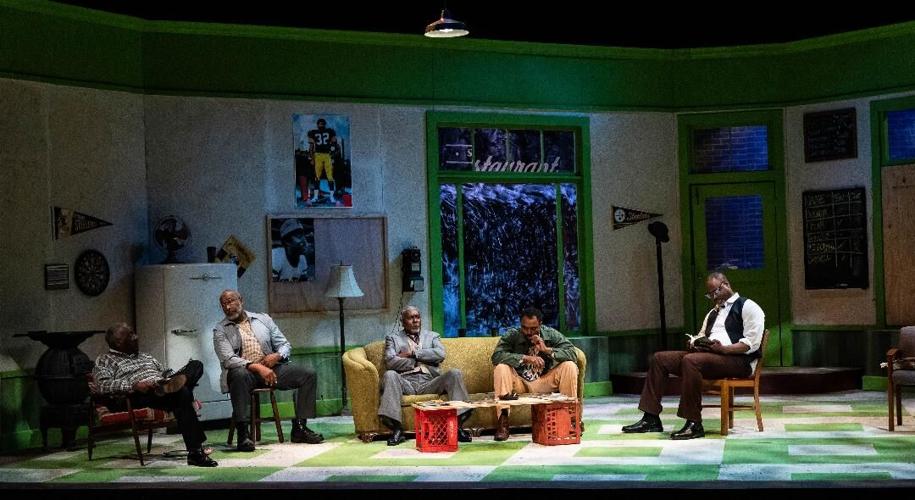
Featuring a superb ensemble of actors who bring out distinctive characteristics that you won’t soon forget, “Jitney” is a powder-keg of emotions and the evergreen need for connection and kindness in a cold, cruel world.
As the former mill worker who has his share of problems, Kevin Brown gives a powerhouse performance, equal parts fire and compassion.
Becker is grappling with his shame over his son’s prison time for murder. Clarence “Booster” Becker was convicted for killing a white college girlfriend, who had accused him of rape after her father found out about their relationship. As the wayward son, Phillip Dixon offers a complex performance as he seeks to patch up his rift with his dad and a fresh start.
Another standout young actor, Olajuwon Davis, plays Vietnam veteran Darnell Williams, aka Youngblood, and you can feel his desire to realize the American Dream for his family as he works two jobs.
Alex Jay is memorable as Rena, his spunky pregnant girlfriend, and brings out the yearning to be part of middle-class society as they’re starting out, their lives in front of them, dreaming of bright futures.
The cast is enlivened by the dynamic of ace performers J. Samuel Davis, who plays Fielding, and Ron Himes, the director who was called to fill in as Turnbo a few days before the show began its run. Both titans in the local theater community, they are multiple winners and nominees of the St. Louis Theater Circle Awards, and their ease slipping into these roles is one of the joys of seeing them at work.
Fielding is a driver whose life has been marred by alcoholism and Turnbo, a cranky guy who knows it all, likes to stir up trouble.
Another bright spot is Edward Hill as Doub, a Korean War veteran who keeps it all together at the service.
Rounding out the cast is Robert A. Mitchell as Shealy, a local bookie who does not drive but spends his time there using the pay phone to run his numbers game, and Richard Harris as Philmore, as a hotel doorman who gets rides from the guys.
Director Himes capitalizes on Wilson’s ability to draw us into his world that is so vivid. The production is enhanced by spot-on music choices reflecting that era, an impeccably designed set by Harlan D. Penn, the always exquisite lighting design of Joseph W. Clapper and sharp sound design from Justin Schmitz. Jamie Bullins’ costume design shrewdly reflects the characters.
As Wilson chronicled African American life during the 20th century, we learned about specific journeys in a way that resonated universally. Call them ordinary people, but on stage, they create a stunning portrait of America – and they make a beautiful noise. All but one of his 10 plays are set in his hometown.
Because of the Black Rep’s unwavering commitment to Wilson’s plays, we St. Louisans have been fortunate to experience his Pittsburgh plays, or Century Cycle, in the highest quality possible.
These productions, now in the company’s second go-round, have enriched not only my theater-going but also my understanding of humanity. I look forward to the rest I have not seen.
Whether you have seen any or none, engage a ride with “Jitney” May 4-May 29.
The Black Repertory Theatre of St. Louis presents August Wilson’s “Jitney” May through May 29 at the Edison Theatre on the campus of Washington University in St. Louis. For tickets, visit
For more information, visit www.theblackrep.org
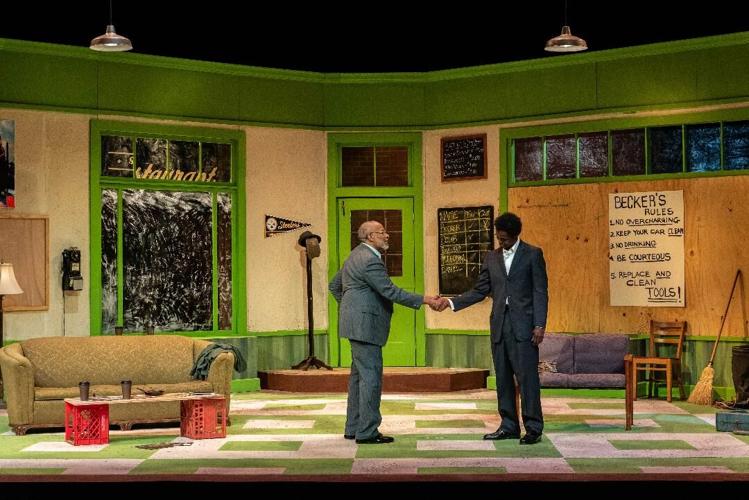

Lynn (Zipfel) Venhaus has had a continuous byline in St. Louis metro region publications since 1978. She writes features and news for Belleville News-Democrat and contributes to St. Louis magazine and other publications.
She is a Rotten Tomatoes-approved film critic, currently reviews films for Webster-Kirkwood Times and KTRS Radio, covers entertainment for PopLifeSTL.com and co-hosts podcast PopLifeSTL.com…Presents.
She is a member of Critics Choice Association, where she serves on the women’s and marketing committees; Alliance of Women Film Journalists; and on the board of the St. Louis Film Critics Association. She is a founding and board member of the St. Louis Theater Circle.
She is retired from teaching journalism/media as an adjunct college instructor.

